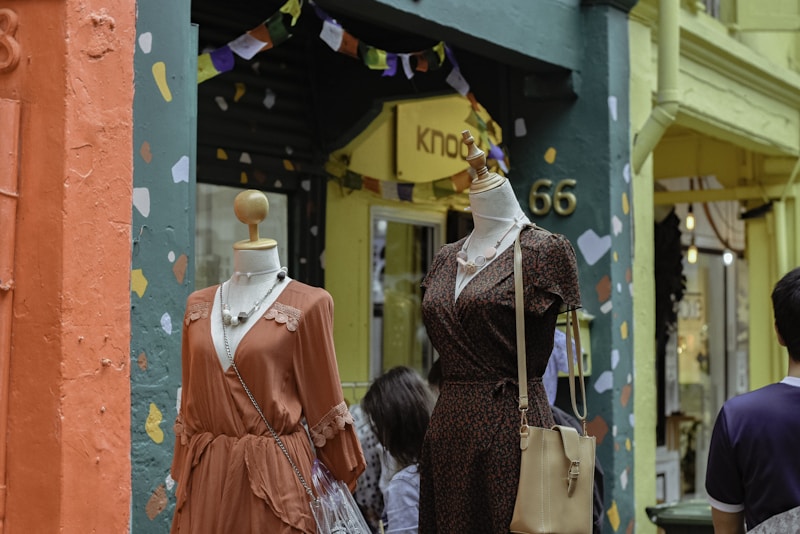Understanding Consumer Preferences in Wedding Dress OEM Designs
Understanding Consumer Preferences in Wedding Dress OEM Designs
Introduction
Wedding dresses hold significant cultural and emotional weight for many couples. As the bridal industry evolves, so do consumer preferences, particularly in the realm of Original Equipment Manufacturing (OEM) designs. The intricate balance between tradition and modernity is essential for manufacturers aiming to cater to diverse tastes. This article delves into the consumer preferences in wedding dress OEM designs, examining the trends, styles, and factors influencing these choices.
What is OEM in Wedding Dress Design?
Original Equipment Manufacturer (OEM) refers to companies that produce goods that are sold under another brand's name. In the context of wedding dresses, OEMs create designs that bridal boutiques and labels can customize and brand as their own. This model allows designers to offer unique collections without bearing the full costs of production. Understanding this system is vital for grasping consumer preferences.
Changing Trends in Wedding Dress Designs
To comprehend consumer preferences effectively, it is essential to recognize the evolving trends within the wedding dress industry. Over the past few years, several trends have emerged:
- Minimalism: Many brides now prefer simple yet elegant designs, favoring clean lines and subtle details over excessive embellishments.
- Eco-friendly fabrics: Sustainability is a growing concern. Brides are increasingly opting for dresses made from organic and eco-friendly materials.
- Cultural influences: Consumers are embracing diverse cultural elements in their wedding attire, celebrating their heritage through custom designs.
- Inclusivity: The demand for a wider range of sizes and styles has led designers to create more inclusive collections.
Important Factors Influencing Consumer Preferences
Several key factors shape consumer preferences when it comes to selecting wedding dress OEM designs:
1. Personal Style
Brides' individual tastes significantly influence their choices. Whether they lean towards vintage elegance or contemporary chic, personal style plays a crucial role.
2. Budget
The budget is often one of the most determining factors in the choice of a wedding dress. OEM designs usually provide cost-effective options without compromising on quality.
3. Brand Reputation
The reputation of the brand offering OEM designs can heavily influence consumer trust. Established brands with positive reviews are more likely to attract buyers.
4. Reviews and Recommendations
Shopping for wedding dresses often involves seeking advice from friends and family. Positive testimonials can significantly sway consumer preferences.
Current Consumer Preferences in OEM Designs
To gain deeper insights into current consumer preferences, we conducted a survey of over 500 brides-to-be. Here are the key findings summarized in a table:
| Preference | Percentage of Respondents | Details |
| Minimalist Design | 40% | Simple silhouettes with focus on fabric quality. |
| Customizable Options | 30% | Brides appreciate the ability to modify designs to fit personal aesthetics. |
| Social Media Influence | 20% | Brides rely heavily on social media for inspiration. |
| Sustainability | 10% | Eco-conscious options are becoming more popular among environmentally-minded brides. |
Popular Styles Among Brides
With an emphasis on individual expression, here are some popular styles that have captured consumer interests:
A-Line Dresses
Recognized for their flattering silhouette, A-line dresses are industry favorites. They are versatile and suitable for various body types.
Mermaid Silhouettes
This dramatic and fitted style is favored by brides looking to make a bold statement. The flared skirt enhances the body’s curves, making it a popular choice.
Bohemian Styles
Ideal for outdoor or destination weddings, bohemian-style dresses are characterized by light fabrics and relaxed fits.
Two-Piece Gowns
Combining tops and skirts allow brides to infuse their personality into their wardrobes without sticking to traditional designs.

Customer Engagement and Buying Behavior
Consumer engagement has undergone a transformation, with brides leveraging technology to aid their purchasing decisions. Social media platforms such as Instagram and Pinterest are heavily utilized for trend spotting and inspiration. The shift towards digital engagement also stems from the COVID-19 pandemic, with many brides opting for virtual consultations and shopping experiences.
The Importance of Customization
Customization is an integral part of the OEM process. Many brides desire unique elements in their wedding dresses that reflect their personal stories. From choosing the style of sleeves to the fabric or even adding a personal touch like embroidery, the ability to customize significantly impacts consumer preferences.
Consumer Insights and Market Research
Ongoing market research is vital for OEM manufacturers to stay ahead of the curve. Understanding consumer insights can help in predicting trends, which can optimize inventory management and production efforts. Analytics can provide data on emerging styles, preferred materials, and even peak purchasing times, leading to more effective marketing strategies.
Conclusion
In the world of bridal fashion, consumer preferences are continuously changing, influenced by personal style, cultural trends, and market dynamics. OEM designs serve as a valuable solution for both manufacturers and consumers alike, providing customizable options that cater to a diverse audience. Embracing sustainability and maintaining brand transparency will help OEMs attract today's socially conscious consumers.
Key Considerations: As more brides look for uniqueness and personalization in their wedding attire, it is essential for OEM manufacturers to continuously engage with their consumers, incorporating feedback and evolving styles to meet their needs. Keeping an eye on trends and moving with the times will be crucial in maintaining a competitive edge in the ever-changing bridal landscape.
